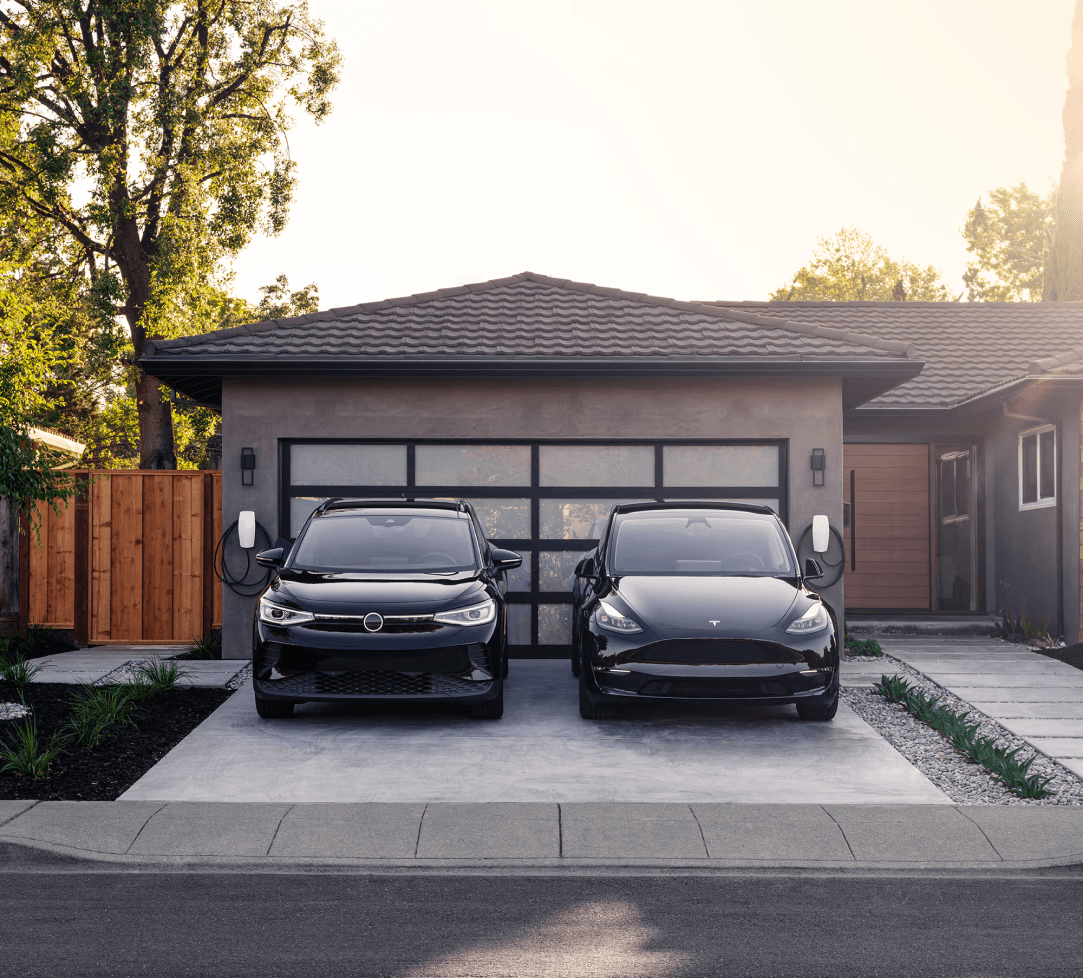Understanding NACS vs. J1772 EV Charging Standards - Which is Right for Me?
Understanding the difference between NACS vs J1772 charging standards is essential for making an informed decision about which EV charger is right for you.

Understanding NACS vs. J1772 EV Charging Protocols
As electric vehicles (EVs) continue to gain popularity, understanding the different charging protocols is essential for making informed decisions about your EV charger. Two of the most commonly used standards in North America are the North American Charging Standard (NACS) and the J1772 protocol. In this guide we'll break down NACS vs J1772 charging standards.
What is NACS?
The North American Charging Standard (NACS) was developed by Tesla to offer a streamlined, efficient charging solution for its electric vehicles. Initially proprietary to Tesla, NACS connectors are now being adopted by a growing number of automakers. NACS chargers deliver both Level 2 AC charging (for home charging) and DC fast charging (for public stations), offering a high degree of flexibility.
NACS vs J1772 - Key benefits of NACS:
- Compact Design: NACS connectors are smaller, sleeker, and easier to handle compared to J1772.
- Fast Charging: With Tesla's proprietary Supercharger network, NACS supports some of the fastest charging speeds available.
- Growing Adoption: Although originally exclusive to Tesla, many automakers have announced plans to adopt NACS in future EV models, making it a versatile option for the years ahead.
What is J1772?
The J1772 protocol is the widely accepted standard for most non-Tesla electric vehicles in North America. It’s a universal charging connector for Level 1 and Level 2 AC charging, making it compatible with most public charging stations and home EV chargers.
NACS vs J1772 - Key benefits of J1772:
- Universal Compatibility: J1772 is the standard for almost all non-Tesla EVs, ensuring compatibility with most charging infrastructure.
- Established Network: J1772 has been the go-to standard for years, with charging networks already in place across North America.
- Cost-Effective: J1772 chargers tend to be more budget-friendly compared to proprietary or future-focused solutions like NACS.
Future Trends in EV Charging
When it comes to comparing future trends of NACS vs J1772, J1772 has been the dominant standard for non-Tesla EVs, however the tide is shifting. In the past year, several major automakers—including Ford, General Motors, and Rivian—have announced plans to adopt NACS for future EV models. This trend indicates that NACS could become the new dominant standard, especially given the growing number of public charging stations now offering NACS compatibility.
Check out this ultimate guide on EV charging.
However, J1772 remains a robust, widely supported option for those who own or are considering current non-Tesla vehicles. For budget-conscious consumers, a J1772 home charger may still be the best choice due to its lower cost and established infrastructure.
Which is Right for You - NACS vs J1772?
If you’re a Tesla owner or planning to purchase a vehicle from an automaker that’s adopting the NACS standard, investing in an NACS-compatible charger makes sense for both home and public charging. For those with current non-Tesla EVs, a J1772 charger provides reliable, cost-effective charging and is supported by the vast majority of public charging stations.
As the EV industry evolves, staying informed on charging standards will help ensure you’re making the best choice for your electric vehicle needs. Whether you’re investing in a NACS or J1772 charger, the future of electric mobility is bright, and the charging infrastructure is expanding to meet the growing demand.
At ChargerPro, we professionally install all types of level 2 EV chargers and can guide you through the process from start to finish. Contact us today to learn more or check out our resource page to learn more about each automaker and charging compatibility.




